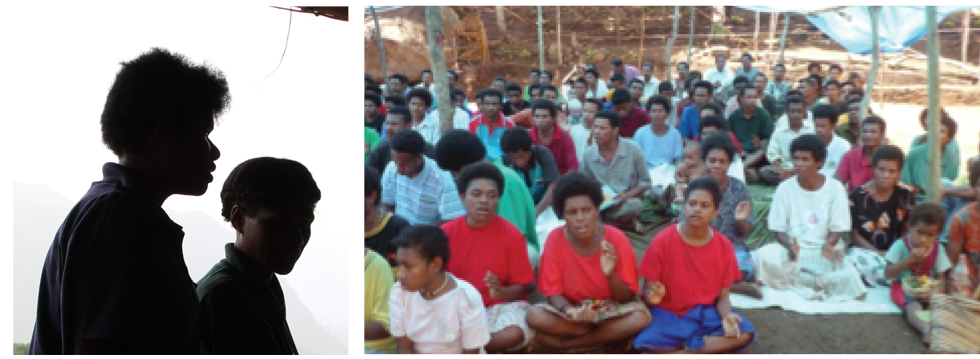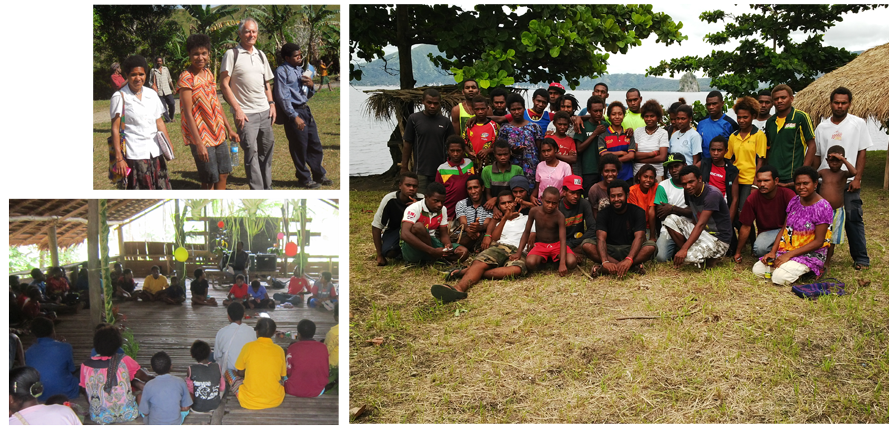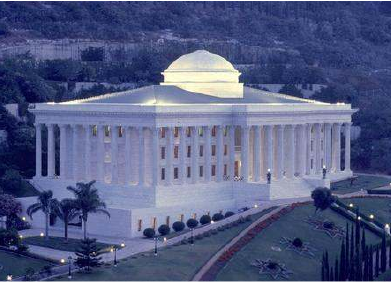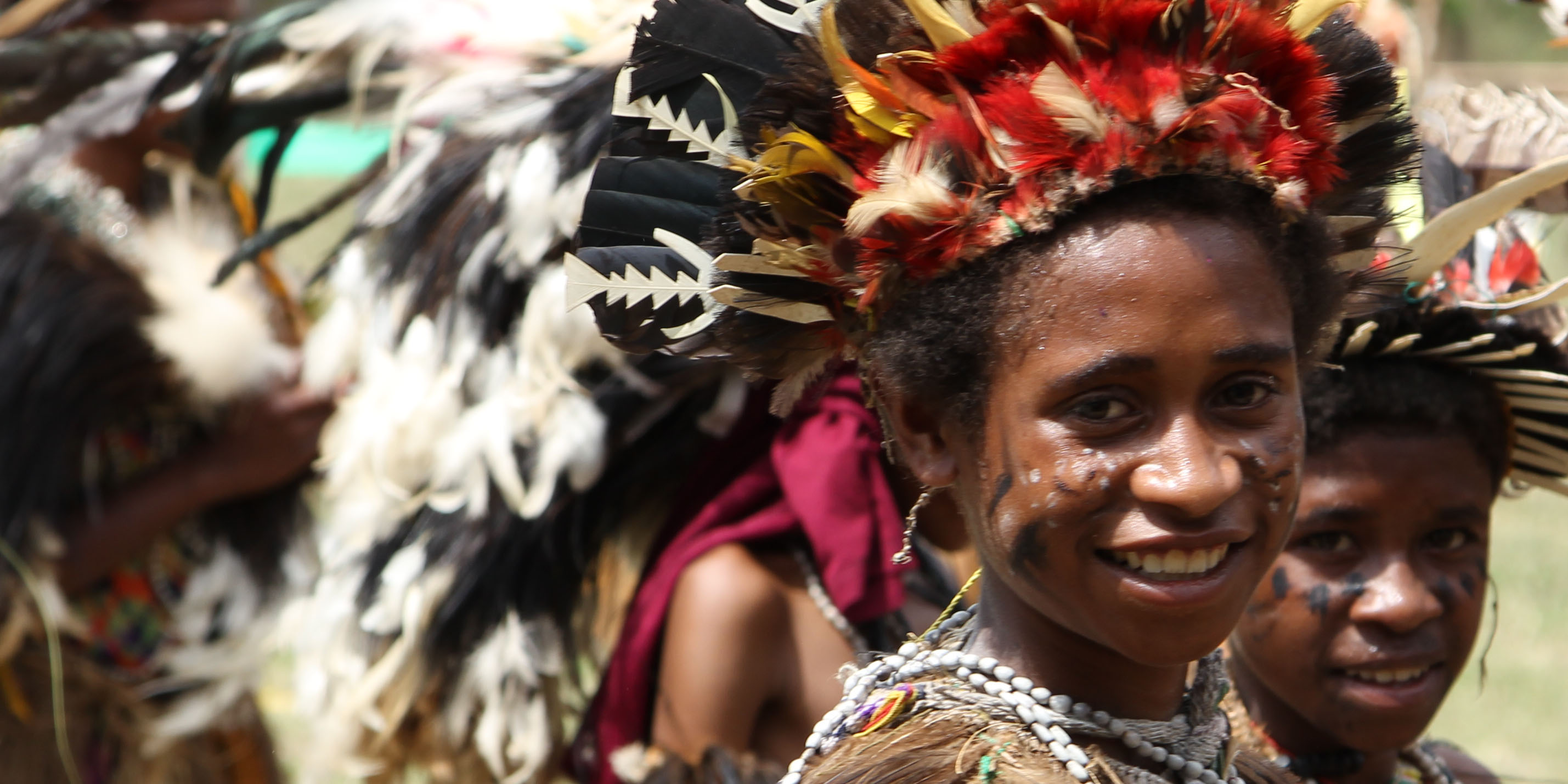Bahá’í Community
The Bahá’í Community of Papua New Guinea is estimated at approximately 60,000 and is representative of the country’s rich cultural and ethnic diversity.
Bahá'ís can be found in every province and in most of the Districts of Papua New Guinea.
This relatively small community has been able to make an impact in the localities that they reside in, by offering various community-building initiatives aimed at raising the capacity among the residents of their areas to take charge of their own spiritual, social, and intellectual development.
Bahá’ís hail from all walks of life. Young and old, men and women alike, they live alongside others in every land and belong to every nation. They share a common goal of serving humanity and refining their inner-lives in accordance with the teachings of Bahá’u’lláh.
The community to which they belong is one of learning and action, free from any sense of superiority or claim to exclusive understanding of truth. It is a community that strives to cultivate hope for the future of humanity, to foster purposeful effort, and to celebrate the endeavours of all those in the world who work to promote unity and alleviate human sufferin
Papua New Guinea is a rich tapestry of cultural contrasts. The country is comprised of over 7000 cultural groups speaking around 800 languages. The traditional values and beliefs are distinct and unique to each local community. The richness of the culture is showcased through the traditional attire where faces are painted and elaborate colourful costumes are worn.
All Art is a gift of the Holy Spirit. When this light shines through the mind of a musician, it manifests itself in beautiful harmonies. Again, shining through the mind of a poet, it is seen in fine poetry and poetic prose. When the Light of the Sun of Truth inspires the mind of a painter, he produces marvelous pictures.
— ‘Abdu’l-Bahá, quoted in Lady Blomfield’s The Chosen Highway.

Bahá’u’lláh made the equality of men and women one of the fundamental principles of His Faith.
The world of humanity has two wings – one is women and the other men. Not until both wings are equally developed can the bird fly. Should one wing remain weak, flight is impossible. Not until the world of women becomes equal to the world of men in the acquisition of virtues and perfections, can success and prosperity be attained as they ought to be.
- Abdul’ Bahá

Traditionally the status of women has been low and the involvement of women largely limited to child rearing, farming and domestic duties. However in the Bahá’i community with the Bahá’i institute process penetrating all levels of the community, the capacity of women has advanced and they have confidently moved into the arena of service which has seen them making meaningful contributions towards the enhancement of the education process in their communities as Animators of Junior Youth groups and as Teachers of Childrens’ Classes. The Bahá’i institutions at the cluster, regional and national levels have also benefitted from the increasing membership of women.
Papua New Guinea is a land of diverse cultures and each province, tribe and group takes great pride in their own cultural heritage. Although competition for resources or the need to avenge a perceived injustice have resulted in tribal fights, the Melanesian concept of consultation is invoked as a mechanism towards the restoration of peace and harmony.
The conviction that we belong to one human family is at the heart of the Bahá’í Faith. The principle of the oneness of humankind is “the pivot round which all the teachings of Bahá’u’lláh revolve”.
Bahá’u’lláh compared the world of humanity to the human body. Within this organism, millions of cells, diverse in form and function, play their part in maintaining a healthy system. The principle that governs the functioning of the body is cooperation. Its various parts do not compete for resources; rather, each cell, from its inception, is linked to a continuous process of giving and receiving.
Acceptance of the oneness of humanity demands that prejudice—whether racial, religious, or gender related—must be totally eliminated

Bahá’u’lláh - the Prophet Founder of the Bahá’i Faith states that “No welfare and no well-being can be attained except through consultation.”
Consultation is a distinctive and unifying method of decision-making that is used by Bahá’is whether at home, among friends, or while serving on committees or institutions at any level.
Ideas are shared in a frank, dispassionate, respectful and cordial manner.
This process serves as a means of harmonizing differing points of view, thus promoting unity among the members of a community, strengthening the bonds of trust and love between the individual, community and institutions, while at a subject from different points of view.
Consultation is a mechanism by which “The shining spark of truth cometh forth only after the clash of differing opinions.”

The Universal House of Justice is the Supreme International governing council body of the Bahá’i Faith and the centre of Bahá’u’lláh’s Covenant today.
 The Seat of the Universal House of Justice in Haifa, Isreal.
The Seat of the Universal House of Justice in Haifa, Isreal.
The affairs of the Bahá’i community are administered at local, regional, national and international levels.
The Universal House of Justice is the international governing council of the Bahá’í Faith. Its creation was ordained by Bahá’u’lláh.
Bahá’u’lláh conferred authority upon the Universal House of Justice to exert a positive influence on the welfare of humankind, to promote education, peace and global prosperity, and to safeguard human honour and the position of religion. It is charged with applying the Bahá’í teachings to the requirements of an ever-evolving society and is thus empowered to legislate on matters not explicitly covered in the Faith’s Sacred Texts. The guidance provided by the Universal House of Justice ensures unity of thought and action in the Bahá’í community as it learns to translate into reality Bahá’u’lláh’s vision for a spiritually and materially prosperous global civilization.
The supreme governing institution of the Bahá'í Faith is the Universal House of Justice situated in Haifa, Israel. Under its guidance, elected bodies of nine members, known as National Spiritual Assemblies and Local Spiritual Assemblies tend to the affairs of the Bahá’í community at their respective levels, exercising legislative, executive, and judicial authority.
The responsibilities of a National Spiritual Assembly include channelling the community’s financial resources, fostering the growth and vibrancy of the national Bahá’í community, supervising the affairs of the community including its social and economic development activities and its properties, overseeing relations with government, resolving questions from individuals and Local Spiritual Assemblies, and strengthening the participation of the Bahá’í community in the life of society at the national level.
The responsibilities of the Local Spiritual Assembly include promoting the spiritual education of children and young people, strengthening the spiritual and social fabric of Bahá’í community life, assessing and utilizing the community’s resources, and ensuring that the energies and talents of community members contribute towards progress. It is also responsible for organizing the Nineteen Day Feast, which is the cornerstone of Bahá’í community life. During the Nineteen Day Feast the friends living in a particular locality gather to pray and consult together, give suggestions to the Local Spiritual Assembly, and receive information from it.


